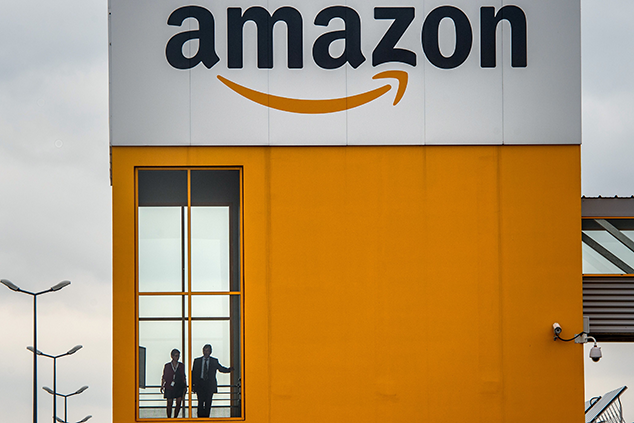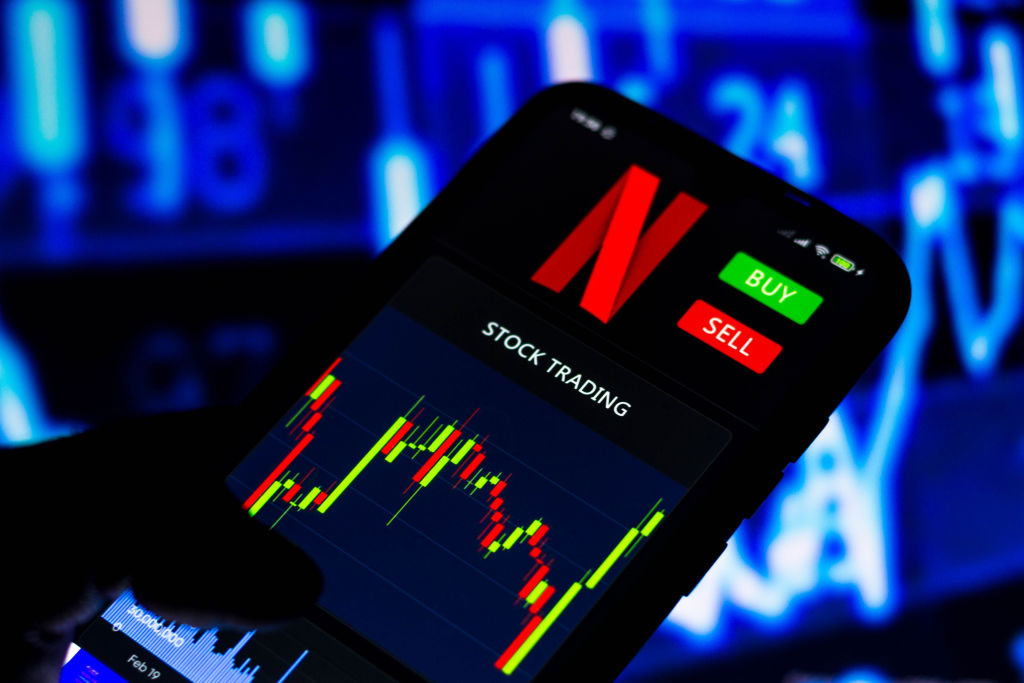Why the big tech companies should be broken up
Rather than wait and be at the mercy of regulators, the big tech companies should begin the process of breaking themselves up, says Matthew Lynn.

Get the latest financial news, insights and expert analysis from our award-winning MoneyWeek team, to help you understand what really matters when it comes to your finances.
You are now subscribed
Your newsletter sign-up was successful
Want to add more newsletters?

Twice daily
MoneyWeek
Get the latest financial news, insights and expert analysis from our award-winning MoneyWeek team, to help you understand what really matters when it comes to your finances.

Four times a week
Look After My Bills
Sign up to our free money-saving newsletter, filled with the latest news and expert advice to help you find the best tips and deals for managing your bills. Start saving today!

The calls for the big tech companies such as Amazon, Facebook, Google and Apple to be split apart grow ever louder and more ferocious. It's an issue that has found rare cross-party consensus in the US, and the EU has already imposed massive fines for market dominance on the tech firms, and there is plenty of discussion about forcing them to split off whole units. It remains to be seen what happens.
Yet there is one move the critics haven't thought of, and that shareholders have yet to take into account. The likes of Jeff Bezos at Amazon and Sergey Brin and Larry Page at Google could learn a lesson from the greatest monopoly tycoon of all time John D Rockefeller and break themselves up.
A lesson from Standard Oil
The company fought the break-up, and so did its founder. But it didn't work out too badly in the end. As the owner of about 25% of the equity in each new unit, Rockefeller's fortune just grew and grew after the split, and the companies spun out of Standard continued to dominate the oil industry. Indeed, they still do today.
MoneyWeek
Subscribe to MoneyWeek today and get your first six magazine issues absolutely FREE

Sign up to Money Morning
Don't miss the latest investment and personal finances news, market analysis, plus money-saving tips with our free twice-daily newsletter
Don't miss the latest investment and personal finances news, market analysis, plus money-saving tips with our free twice-daily newsletter
The tech giants could follow suit. Take Amazon. It could fairly easily split into three units: Amazon retail, shipping books and everything else around the world; Amazon media, which would include its TV unit, the Kindle store, and music streaming; and Amazon web services, which would own its massive cloud-computing business. It might lose a few synergies on its Prime service, but it could easily cover that with some form of sharing arrangement. Indeed, arguably the three baby Amazons would be in better shape after a split, simply because they would be smaller and more focused.
The same is true of Alphabet, or Google. It could be split into search, covering its main website; mobile systems, which would own the Android operating system and all the apps that come with it; and web services, which would control the Play Store, and potentially all the other internet devices the company has been investing in. The chances are that each unit would keep on growing, and the two founders would have a controlling interest in all of them.
The same logic could be applied to Apple and Facebook. Apple could split into its hardware unit, making computers and phones, and a web-services unit covering TV, games and music streaming. Likewise, Facebook could split out WhatsApp from the main social-media site, and it could possibly split itself geographically as well, just as Standard Oil did a century ago.
Bezos, Page and Brin are, without doubt, the smartest businessmen in the world. Their one final stroke of genius would be to orchestrate their own break-up. It would protect their empires from the threat of an imposed break-up, and allow them to control the process rather than leaving it at the mercy of regulators and politicians. And it would make them even richer and more powerful even if that is probably not quite what their critics have in mind.
Get the latest financial news, insights and expert analysis from our award-winning MoneyWeek team, to help you understand what really matters when it comes to your finances.

Matthew Lynn is a columnist for Bloomberg and writes weekly commentary syndicated in papers such as the Daily Telegraph, Die Welt, the Sydney Morning Herald, the South China Morning Post and the Miami Herald. He is also an associate editor of Spectator Business, and a regular contributor to The Spectator. Before that, he worked for the business section of the Sunday Times for ten years.
-
 How should a good Catholic invest? Like the Vatican’s new stock index, it seems
How should a good Catholic invest? Like the Vatican’s new stock index, it seemsThe Vatican Bank has launched its first-ever stock index, championing companies that align with “Catholic principles”. But how well would it perform?
-
 The most single-friendly areas to buy a property
The most single-friendly areas to buy a propertyThere can be a single premium when it comes to getting on the property ladder but Zoopla has identified parts of the UK that remain affordable if you aren’t coupled-up
-
 Most popular stocks of 2023: AI on the up while interest in Netflix plummets
Most popular stocks of 2023: AI on the up while interest in Netflix plummetsWe reveal the most popular shares of 2023 so far.
-
 Invest in Brazil as the country gets set for growth
Invest in Brazil as the country gets set for growthCover Story It’s time to invest in Brazil as the economic powerhouse looks set to profit from the two key trends of the next 20 years: the global energy transition and population growth, says James McKeigue.
-
 Sainsbury’s job cuts make business sense, but leave a sour taste
Sainsbury’s job cuts make business sense, but leave a sour tasteNews The job cuts have left a sour taste as they have come with a dividend payout and follow a business-rates holiday. Matthew Partridge reports.
-
 The cloud over retail has a silver lining
The cloud over retail has a silver liningCover Story A sense of gloom hangs over the retail sector – but pick the right stocks at the right price and there are still potential pots of gold out there for long-term buyers, says Phil Oakley.